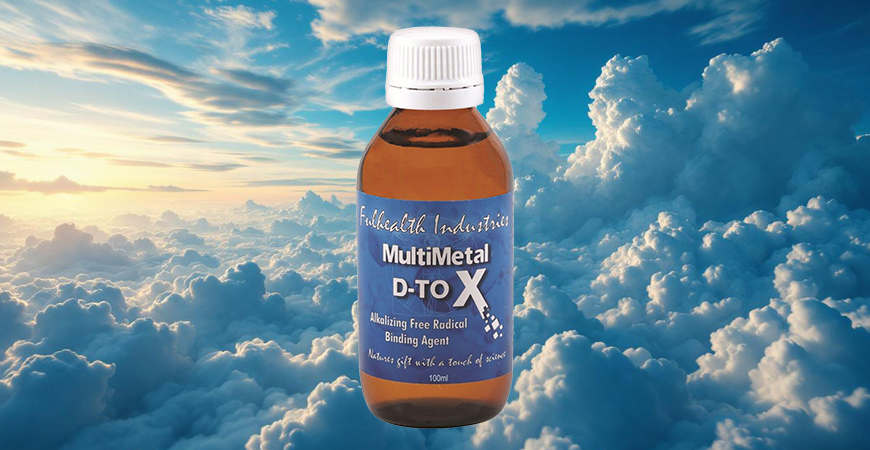Boron for stem cell production
For optimal human health and fitness, boron is a crucial mineral that has numerous beneficial effects on the body, including inflammation reduction and antioxidant protection.
Boron can also aid in the modulation of various body systems.
Recently, scientists found disease-related boron polymorphisms in various species that highlight this mineral’s increasing significance in human health.
Boron sources
Boron is a metalloid found naturally present in rocks, soil, water, and air—weathering of rocks and volcanic activity release boron into the environment.
Plants absorb boron from the soil and concentrate it in their tissues as Fructo-Borate.
Animals absorb boron from plants or other animals that have eaten plants containing this Fructo-Borate.
How boron affects human health
Boron is a necessary mineral for human health as it participates in hydroxylation reactions, vital for the synthesis and metabolism of various substances (minerals, vitamins, enzymes and protein).
Boron is an effective arthritis treatment that enhances bone development in 95% of circumstances by enhancing calcium absorption into bone, joints, and cartilage.
It also has an impact on many hormones, including testosterone and estrogen.
Boron neutron capture agents can assist in cancer therapy. Boron formulations can also be used to attack breast cancer cells in vitro.
Boron is thought to affect blood clotting.
It may alleviate symptoms of congestive heart failure.
Boron reduces lipid accumulation and allows cholesterol removal in various ways, lowering the risk of developing conditions such as blood clots and atherosclerosis and defending the body against heart attacks and strokes.
Borates have various inhibitory actions on enzymes, making them useful for cancer, wound healing, and disease control.
They also reduce genotoxicity.
In addition, borates have improved the function of acetylcholinesterase, which is suppressed by pesticides and protects the human body from oxidative stress caused by CCL 4 and other agents.
Boron boosts bone growth
Boron is important for developing bones as it helps metabolism, bone regeneration, bone formation, and mineralization.
It is also known for influencing various metabolic activities in bones, such as its interaction with magnesium, vitamin D, and calcium, which are essential for bone metabolism.
This synergistic relationship with Ca and Mg homeostasis contributes to its role in bone strength for human health and wellness.
Aging can cause bone weakness in porous bone, and boron can help to overcome this worsening by ensuring that the calcium and magnesium levels are working properly.
Boron stimulates osteoblastic cell activity via calcium flux, i.e., calcium fructo-borate, which significantly decreases serum levels of C-reactive protein (CRP), indicating that this unique plant-mineral borate preparation enhances bone energy and strength by reducing inflammation associated with bone mineral density loss.
Furthermore, boron has been shown to aid bone metabolism with proliferation, cell survival, mRNA expression of osteoblast proteins, and mineralization.
Boron for embryonic development
Pregnant women need to pay special attention to their diet, as the fetus depends entirely on maternal nutrition.
This includes trace minerals, which are essential for normal fetal development.
If these nutrients are not adequately transmitted to the fetus, it can lead to mineral deficiencies which can cause fetal dysplasia and other irregularities.
Furthermore, newborns who do not receive adequate maternal nutrition during gestation or pregnancy are more likely to be deficient in minerals and other nutrients in childhood.
Many researchers have investigated the role of boron nutrition in animal and human health.
The Nielsen “stressor model” is a widely used hypothesis that suggests that the absence of one or more nutrients in the diet can lead to negative health outcomes and the effects of supplemental boron on diets with low copper or magnesium concentrations in the body.
Under these situations, boron altered the biochemistry of various nutritional indicators, including hemoglobin, blood glucose, platelet, and hormonal levels.
Boron is good for brain activity
Boron is an essential element for brain function, and a lack of it causes adverse effects on the central nervous system. Human brain activity studies have revealed that a lack of boron in the diet results in reduced electrical brain activity.
Boron supplementation (3 mg/day) in participants who intake a diet containing approximately 0.25 mg boron/2000 kcal for approximately 63 days alters the electroencephalogram, with a tendency towards the action at lower frequencies and greater interaction at higher frequencies of the dominant frequency spectrum.
In the meantime, supplemental boron has been linked to greater psychomotor skills, less drowsiness, mental clarity, improved short-term memory, and enhanced attention in older men and women.
Boron and its role in wound healing
Boron is known to have wound-healing properties, as a 3% solution of boric acid has been reported to heal deep wounds.
Boric water was previously known for its antimicrobial properties.
Today, borates are used in really low concentrations to treat different wounds and achieve better human health.
Boron’s mode of action in wound healing is associated with protein, collagen, and proteoglycan synthesis.
Boron also controls the growth of the extracellular matrix, which aids in wound healing by stimulating the expression of proteins, collagen, and proteoglycans. It also promotes tumor necrosis factor release and synthesis.
Boron for hormone metabolism
Boron is a nutrient that improves steroid hormone metabolism, especially sex hormone metabolism, by enhancing testosterone levels in men and estrogen levels in menopausal women.
It is also found that a two-month heavy body workout could lower testosterone production in non-professional bodybuilders.
Nonetheless, boron supplementation effectively regulates this hormone level for optimum human health.
It can also boost estrogen levels in menopausal women, allowing them to reclaim their sexual energy within a few days of starting treatment.
Boron may decrease the need for pharmaceutical solutions or hormone replacement therapy by increasing the natural level of sex hormones in the body.
Boron can also alleviate menopausal symptoms such as night sweats and hot flashes, confirming the adequate mineral level.
Postmenopausal females frequently suffer from hormonal imbalances affecting the body’s most important processes.
Boron is key to a healthy immune response
Boron influences immune cell populations in response to other dietary factors, such as fatty acids.
A 12-week study of healthy young men found that supplementing with polyunsaturated fatty acid n-3 (PUFA-3) at a dose of 6 g/day decreased the number of white blood cells, primarily decreasing the number of granulocytes.
As a result, the proportion of lymphocytes in white blood cells increased.
However, the mechanisms underlying boron’s anti-inflammatory or immune response capabilities have been attributed to several factors, including suppression of serine proteases, leukotriene synthesis, decreased oxidative stress, modulation of T cell activity, and regulation of antibody concentrations.
Boron to help fight cancer
Borates have been shown to positively influence prostate cancer cells to maintain good human health.
These anti-carcinogenic properties may be linked to their effects on NAD and calcium channels.
NAD is required for cell cholesterol and fat production.
The movement of Ca ++ in and out of the cells is also important for cell survival.
When the development of NAD/NADP is interrupted, the cell’s functioning suffers.
It has been discovered that the concentration of boric acid affects NAD production and Ca++ secretion in cancer cells.
Borates benefit cancer treatment by inhibiting the cells’ growth and flattening the cancer cells.
They reduce cyto-chemicals, MAPK, and A-E cyclines, resulting in cells with lower adhesion, F-actin modifications, invasive activity, and migration. Borates inhibits tumor cell proliferation in the LNCaP and DU-145 cell lines and strongly inhibits tumor growth.



